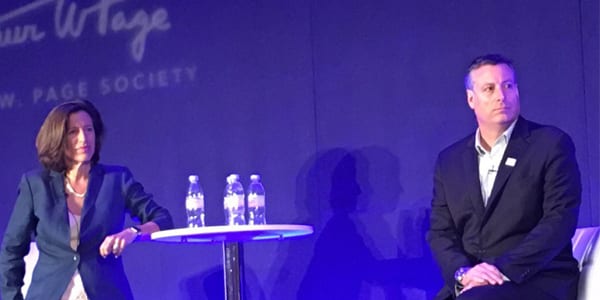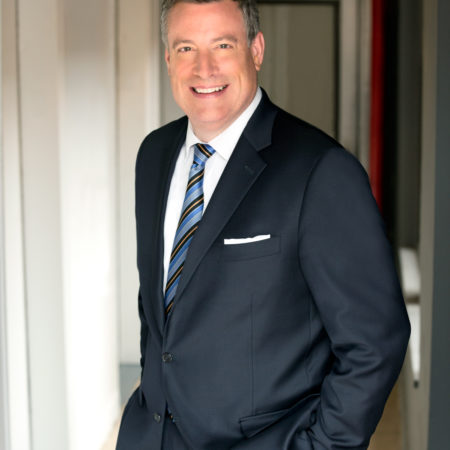
Melissa Fleming and Rob Flaherty
The author Terry Pratchett wrote last year, “Why do you go away? So that you can come back. So that you can see the place you came from with new eyes and extra colors.”
Two weeks ago, about 150 Page members traveled to London for our 33rd Annual Conference to see their own world through different eyes and brighter colors.
Our first-ever annual meeting outside the U.S. covered universal themes and sought to better inform us about our jobs as senior communications counsellors and the role of our company in society.
The discussions about Brexit – the unexpected decision by British citizens to exit the European Union – weren’t just for our members from London. They were meant as a direct analogy to the dynamics steering the upcoming U.S. election and causing the tectonic rifts emerging across Europe. Understanding Brexit isn’t just about understanding the vote itself, or even its future implications, but understanding the context in which it took place. That context affects us all, no matter where we live. It just so happens that our conference took place at the epicenter of one of the most pronounced examples of its significance.
The keynote by Paul Polman wasn’t just a case study of the company he leads, Unilever. It was a challenge to all of us to examine the sometimes narrow definition of success at our own companies. He exhorted us to find the intersection of commercial gain and societal solutions, pointing out that “the price of taking humanitarian action is less than the cost of inaction.”
Our interactive discussion about cultural sensitivity went well beyond the usual pablum about presenting your business card with two hands. In a master’s class on multiculturalism, INSEAD’s Erin Meyer made us think at a deeper level about the often unseen differences between us, our cultural preconceptions and behaviors and why they exist, and why it’s more important than ever to understand them in our shrinking world.
Just when we thought the award-winning screenwriter Richard Curtis was going to entertain us with clips from Hugh Grant movies, he instead showed us what one world-class storyteller can do when he turns his talents to humanitarian issues – and he directly asked us to aim some of our own storytelling power at those causes.
Our discussion about the refugee crisis gripping Europe and the Middle East – brought into painful focus by the moving story told by UN’s Melissa Fleming – was as much about the xenophobia in our own backyard as it was about tent cities in Jordan and Turkey.
Other speakers inspired us with their uncanny perspective and sweep of history (the FT’s Martin Wolf), their sweat-soaked passion for their cause (UNI Global Union’s Philip Jennings), their smart strategy to forge unprecedented alliances (U. S. Steel’s Mario Longhi) and their ability to deliver piercing wit poking satirical fun at our profession (Andy Zaltsman).
Our CCO members brilliantly brought it all home to our jobs – to lead a company with purpose, to drive digital engagement, to build bridges inside and outside our companies (click to tweet).
As conference chair I am indebted to our meeting committee for securing amazing speakers, to our conference co-chair Darcy Keller of the FT who is already planning an amazing meeting next year in San Diego, and to all of our dedicated members who traveled to London to make this milestone in our global expansion possible.
Our theme was “Building Bridges in a Divided World.” Hopefully the first bridge we built allowed us to take all these learnings back home with us.
A version of this article can be found on the Arthur W. Page Society website.
